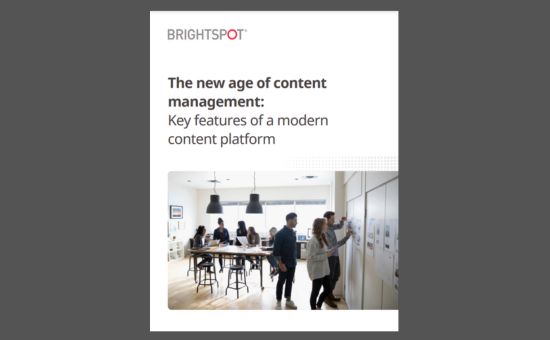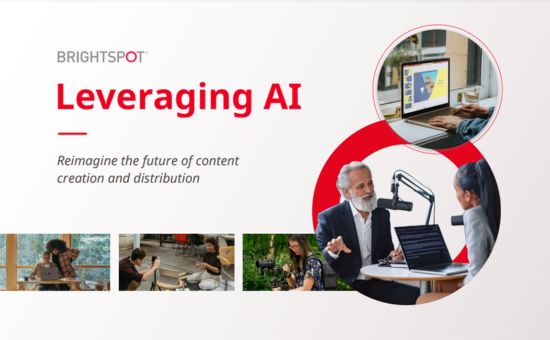You searched for:
Guides
The new age of content management | Brightspot
How Content Management Has Changed In recent years, as digital transformation accelerated, content management has evolved significantly. At the beginning of 2020, Gartner retired its Magic Quadrant for Web Content Management (WCM), stating the market had matured and products had become homogenized. This shift did not indicate the end of content management; instead, it signaled …
Guides
Understanding the differences between a content hub and traditional CMS | Brightspot
Digital transformation is no longer optional—it’s essential and urgent. The pandemic accelerated this need, prompting organizations to rapidly adapt to shifting consumer demands. 97% of executives report that the pandemic hastened their digital transformation efforts, and 79% have increased budgets for this purpose. Despite this awareness, many organizations struggle to take even small steps forward …
Guides
Creating a Customer-First Checkout Experience | Bigcommerce
In ecommerce, numerous critical touchpoints can make or break a sale, including product pages, the homepage, and site search. However, the most crucial point in the buying process is the checkout. Checkout is the final hurdle in converting a shopper into a customer. Any hiccup or unnecessary step can deter a shopper from completing a …
Guides
Low-Code Enterprise Ecommerce: Accelerate product-led development with low-code composable commerce | Bigcommerce
Introduction By 2024, 80% of technology products and services will be created not by traditional tech professionals, but by citizen developers using low-code/no-code tools (Gartner). Tools like WYSIWYG editors, visual coding suites, and AI are revolutionizing application development, and enterprise ecommerce is no exception. In the U.S., 80% of businesses already utilize low-code platforms. These …
Guides
How to simplify and accelerate your digital transformation journey | Brightspot
Introduction Digital transformation means different things to different organizations, teams, and individuals. This variation exists because the impact and effort required by each group are unique. Despite this, a common perception is that digital transformation is a massive, daunting task. This misconception often prevents organizations from taking the first step in their digital transformation journey; …
Guides
Leveraging AI: Reimagine the future of content creation and distribution | Brightspot
The rapid expansion of digital content—the cornerstone of modern marketing—and the ever-changing demands of consumers require a strategic shift in how content is created and distributed. Artificial intelligence (AI) has emerged as a revolutionary force in the digital landscape, offering unparalleled capabilities to enhance creativity, personalization, and workflows. But are we moving too quickly? Are …





